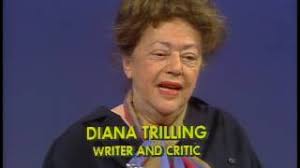41. Anelise Chen
“Why should sports be so steeped in metaphor? Why should it mean so much? It’s absolutely absurd.” -Anelise Chen
Of all
the metaphors used in the world of sports, my least favorite—apart from the
martial—are those borrowed from a different sport. In addition to those too-frequent
comparisons likening the strategic aspects of a game to a chess match,
announcers and pundits have established a veritable litany of cross-sports
references. This tendency is especially present in football where a
hard-throwing quarterback is said to have a good fastball, a free safety is
likened to a center-fielder, and, even within the same sport, the middle
linebacker is identified as the quarterback of the defense, but these sorts of
comparisons are generally unavoidable no matter what game you’re watching.
Apart from the lack of imagination, metaphors like these tend to keep the
frame-of-reference comfortably narrow, allowing viewers to stay locked into a
self-contained world of sport that need have no connection with any other part
of their existence.
Of
course, this fantasy is absurd, both because a multi-billion dollar industry
can’t help but have a profound influence on the society from which it profits and
because the metaphors of sport are practically ubiquitous in our daily lives.
Parsing these metaphors, as well as indulging them, is part of the project of
the narrator of Anelise Chen’s collage novel So Many Olympic Exertions.
A seventh-year Ph.D. student in Sports Studies and a former swimmer, Athena is
struggling to finish her dissertation when she hears about the suicide of a
friend/ex-boyfriend. As her funding gets cut off, she returns home to her
parent’s house in Los Angeles, where she slogs along with her writing, all the
while reflecting on the psychology and symbolism of sport and the way these questions
shape the way we look at our non-sporting lives.
Of particular
interest to the narrator is the question of motivation and will. What is it,
she reflects constantly, that causes an athlete to keep going in the face of
unbearable pain and fatigue? She is especially intrigued by cases where an
athlete simply quit, most memorably relating the story of Japanese marathonist
Shizo Kanakuri who, while running in the 1912 Olympics and finding himself
overheated, stopped off at a garden party for a glass of orange juice. Enjoying
himself, he ended up spending an hour at the party and never finished the race,
returning directly home to Japan instead. In such moments, where the athlete
“refuse[s] to think metaphorically,” the whole fantasy edifice of sports comes
tumbling down, and we cease to believe any more in the necessary illusions.
As a
sports fan, examples like these tend to depress me because they point up the
ultimate futility of the enterprise. After decades of watching the same teams
play in the same leagues, the whole process, at least when subjected to
conscious scrutiny, starts to feel circular and pointless. Each year every
team’s goal is the same—to win a championship—but even when they accomplish
this goal, they are only doing what dozens of teams have done before. Of
course, there are greater achievements available to them, such as winning more championships
than anyone else, or setting new individual records, but at the cost of the
utmost mental and physical investment, all of this hardly seems worth it. It
hardly even seems worth it for the far less taxing mental investment (and non-existent
physical investment) of the fan. And, yet, we keep on watching.
And so
too do we keep on working or writing or simply staying alive. For, in Chen’s
book, the metaphorical implications of sports are always bleeding over into the
non-sports world. Obsessively watching videos of marathoners’ twisted faces,
the narrator reflects, “Sometimes on the street or riding the subway, I’ll see faces
looking similarly beleaguered. I wonder how many more days, or years, or
decades this person’s marathon will go on for.” It’s a depressive way of looking
at things, to be sure, one befitting a person facing both bereavement and a
major life impasse. But it’s also one that everyone’s likely indulged, whether
it’s an athlete who no longer sees the point in continuing, a writer who can’t
summon the motivation to put any more words on the page, or a suicidal man
considering ending it all. It is, sometimes a question of insufficient will,
but it can just as easily be a considered, rational choice. Sometimes we simply
decide a goal is not worth it, and like Shizo Kanakuri, we (metaphorically or
not) just walk away, drink our orange juice, and begin our long journey home.



Comments
Post a Comment